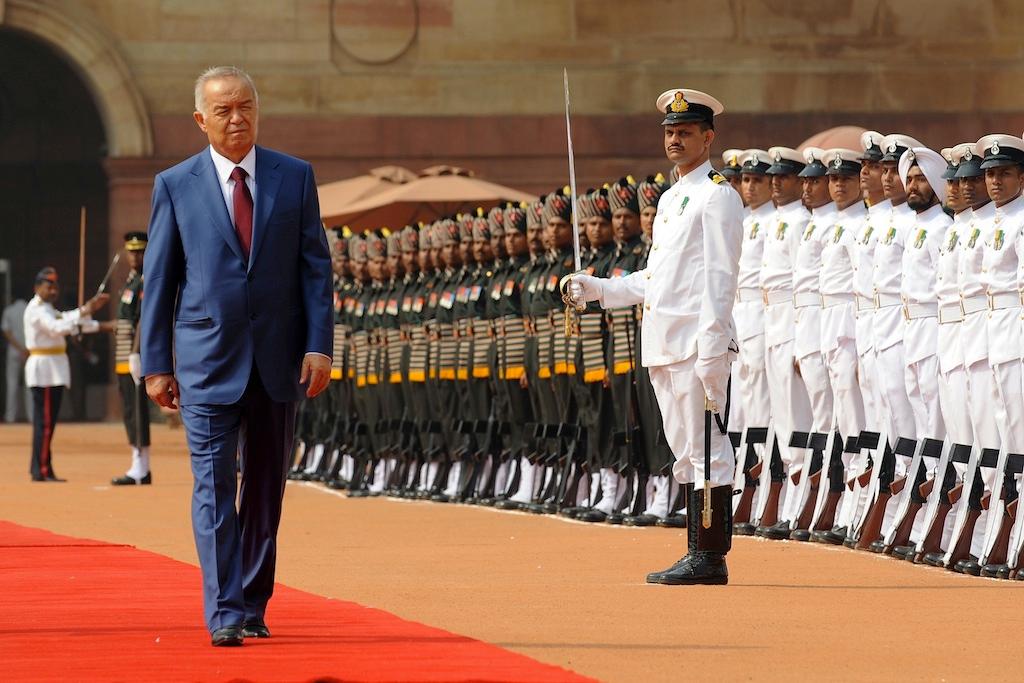Uzbekistan offers West safe Afghan exit in exchange for weapons
#177 — Uzbekistan
Uzbekistan’s President Islam Karimov inspects the guard of honor during a ceremonial reception at President House in New Delhi, India, on May 18, 2011.
Britain is considering selling Uzbekistan weapons in a deal that would reportedly guarantee the nation's troops in Afghanistan an alternative route out, according to Azerbaijan's Trend.
It was not immediately clear when the British-Uzbek proposal would go before parliament. The report comes soon after The New York Times revealed that the authoritarian Central Asian nation had floated similar proposals to US and German officials.
Uzbekistan is prohibited from purchasing arms in most of Europe and the United States, but the Times said the US "has taken the Uzbek proposal seriously enough to partially lift a set of arms sales restrictions that have been in place for about a decade."
International troops are set to withdraw from Afghanistan by 2014, an operation that requires NATO forces to take out 70,000 vehicles and 120,000 shipping containers from the country, the Times said, noting that while Pakistani routes out will be preferred, "alternatives will be important."
The Monday report from Azerbaijan, citing Russia's RIA Novosti, said Britain's draft agreement would involve transporting its military equipment in exchange for discounted weapons. The proposal has not yet been considered by British lawmakers, but Defense Minister Philip Hammond was cited as saying that the weapons would not "be used for internal repression," only "in protection from the rebels or the Islamists, [and in the] fight against crime and drug trafficking."
It is unclear how exactly that would be monitored in iron-fisted Uzbekistan, which has an "atrocious" rights record, according to Human Rights Watch:
"Torture is endemic in the criminal justice system. Authorities intensified their crackdown on civil society activists, opposition members, and journalists. Muslims and Christians who practice their religion outside strict state controls are persecuted, and freedom of expression is severely limited. The government forces more than one million adults and children to harvest cotton under abusive conditions."
In the meantime, Uzbekistan is busy jockeying for influence in the region, said NYT.
Every day, reporters and producers at The World are hard at work bringing you human-centered news from across the globe. But we can’t do it without you. We need your support to ensure we can continue this work for another year.
Make a gift today, and you’ll help us unlock a matching gift of $67,000!
